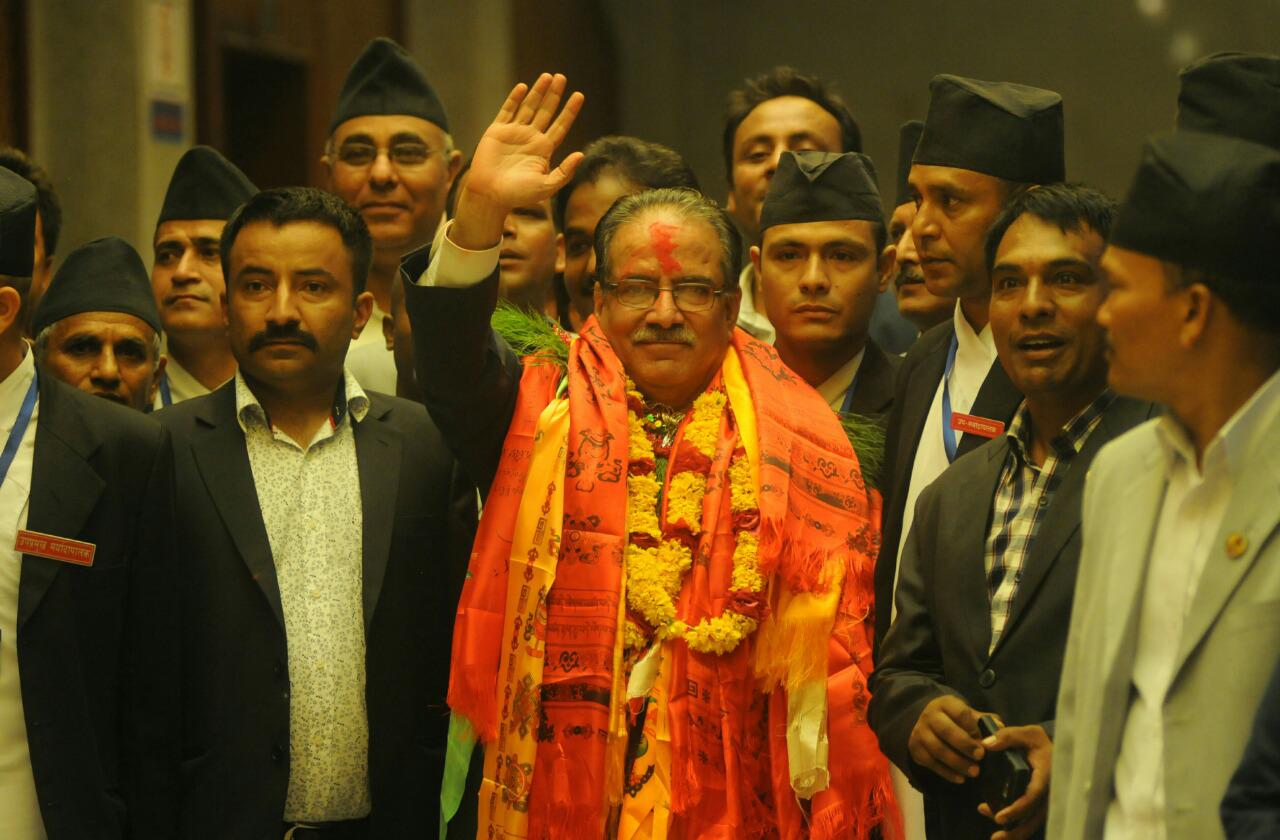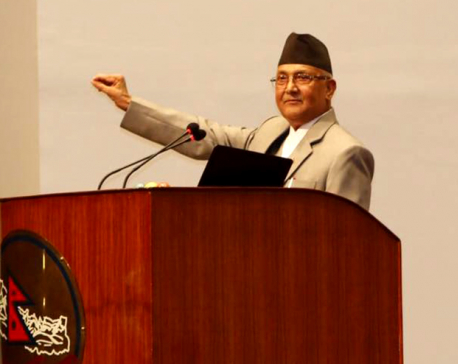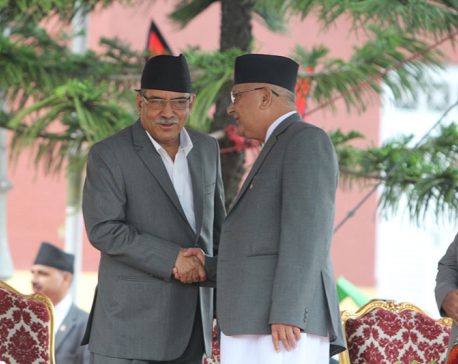
OR
Commentary

Pushpa Kamal Dahal ‘Prachanda’s coming to power despite the fact that his party came third in the last elections and he himself was defeated is an unmistakable reminder of who really matters in Nepali politics. In the run-up to PM’s post, Prachanda had waylaid his competitors including his own protégé Baburam Bhattarai, an ex PM, in a surgical fashion.
Among the great attributes that sets Prachanda apart and gives him an edge over his competitors is his ability to talk sweet even during the toughest moments. Talking tough is anyway his forte, especially because of his rebellious past. Surprisingly, he and Bhattarai, who has now floated his political party, are among the few ones who are able to strike a chord with the people and media by their speeches. Both have impressive the cadre base and fan following.
What is most remarkable about Prachanda is his stamina to sit through the never-ending meetings and debates in Parliament. He never accepted a deal that did not bear Prachanda’s superiority or that he was not ready for. The term of the first constituent assembly passed by without framing a new constitution, two six-month long extensions notwithstanding. The first term saw Prachanda, Madhav Nepal, Jhalanath Khanal and Baburam Bhattarai as the prime minister.
In the second constituent assembly, Nepali Congress (NC) won maximum number of seats followed by UML and UCPN (Now CPN (Maoist Center)). NC leader Sushil Koirala became the prime minister and years of engagement between political parties finally paid off in a consensus on the new constitution between major parties. The second term of the CA has seen Koirala, KP Oli and now Prachanda as the prime minister.
So in a sense, all those who deserved to become Prime Minister have had their chance. Instable governments in the past has taken a serious toll on the nation’s fragile economy and eroded confidence of investors, both foreign and domestic. Whatever little was there in the name of commerce and industry was further hit by the recent earthquake, that left 10,000 people dead.
When Prachanda becomes the Prime Minister for a second time, he will have to have a different agenda from the earlier one. Times have changed a lot since his last stint at Baluwatar, the official residence of Nepali Prime Minister. This time around, healing the scars of people devastated by the earthquake and reconstruction of private homes and public infrastructure is clearly the most pressing need. There is absolutely no scope for indulging in hate politics as that will deviate the attention from repair and reconstruction that needs to be made the top agenda.
A section of the people and political leadership think the new constitution ignores genuine aspirations of the common people, especially in the plains. Now that, this viewpoint has been widely discussed and all major political parties are trying to woo Terai people, there is every possibility that the constitution would finally be accepted by one and all.
Prachanda has many pluses this time when he becomes the prime minister but he has some minuses as well. Whether he is able to foster stronger friendship with India is to be watched out. He shares more cordial relations with China but that alone will not be enough for Nepal to remain on track. He will have to display his ability to balance the two powerhouse neighbours and their interests, sometimes conflicting in nature.
Within Nepal, so much is needed to be done, given the nature’s bounty bestowed on this Himalayan country.
Not long ago, Prachanda was talking about Nepal becoming a transit route for China-India business. This sounds logical also as far as the two big neighbors try and agree on it. Prachanda can certainly carve a common ground for the two countries to engage themselves on regional and global issues.
In dealing with China, Prachanda will not be wrong to use his goodwill to cast India in a positive light. This will give everyone a chance to shake away the old and bitter memories. And, this will also please India and in return Nepal can expect similar camaraderie from India.
Prachanda’s coming to power has a message for India as well where ultra leftist campaigns are deeply entrenched and the conflict never seems to be on the wane. While India needs to learn some lessons from Nepal in conflict resolution for Kashmir and Maoist problems, Prachanda will benefit immensely if he engages with India and learns how today’s India is no laidback, socialist retreat. On the contrary, today’s India has the task to provide employment to its youth, food to its poor people, healthcare and education that meet the global benchmark.
So, the new Nepali Prime Minister has to set the ball rolling as quickly as possible and go about tackling the problems with speed and substance. And, a more frequent engagement between the people and officials of the two countries will do wonders in ironing out any differences that may exist.
(The writer is a Delhi-based journalist having worked in Kathmandu including with the Republica. He can be contacted at arunkumarsrivastav@gmail.com)
You May Like This

The second coming
KP Oli had long established himself as a good leader but it was the Indian economic blockade that made him... Read More...

The second coming
If he wants to be more successful this time, Prachanda should embark on quick grassroots initiatives that appeal to a... Read More...

Second chance with India
The new rapprochement between the world’s two most populous democracies could shape the world’s future ... Read More...







Just In
- NRB to provide collateral-free loans to foreign employment seekers
- NEB to publish Grade 12 results next week
- Body handover begins; Relatives remain dissatisfied with insurance, compensation amount
- NC defers its plan to join Koshi govt
- NRB to review microfinance loan interest rate
- 134 dead in floods and landslides since onset of monsoon this year
- Mahakali Irrigation Project sees only 22 percent physical progress in 18 years
- Singapore now holds world's most powerful passport; Nepal stays at 98th












Leave A Comment